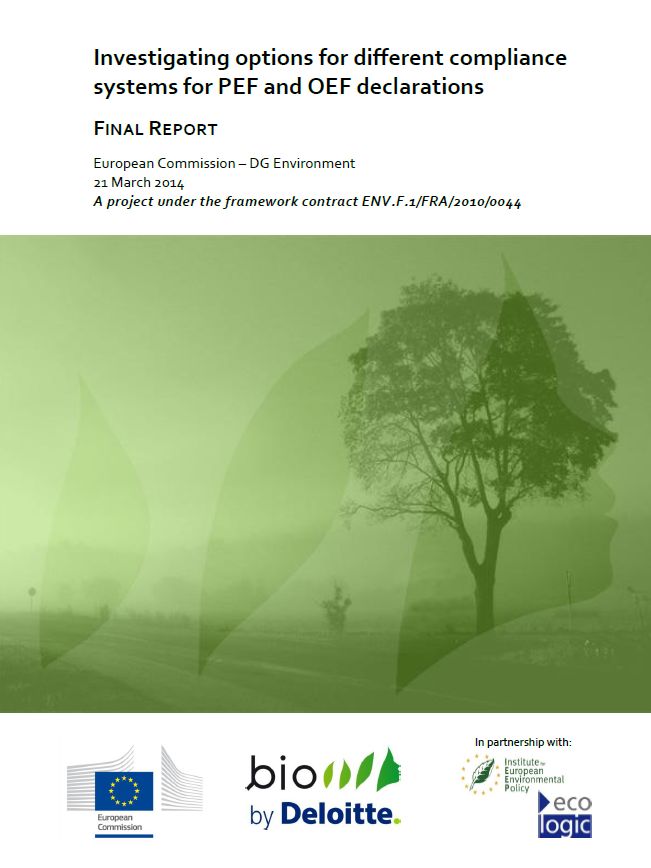How to Verify Claims on the Environmental Properties of Products and Organizations?
- Project
- Duration
-
-
In this project, BIO IS, the Institute for European Environmental Policy (IEEP) and the Ecologic Institute investigated approaches for verifying that claims made by companies on the environmental properties of products or their own overall environmental performance are correct. The study was commissioned by the European Commission, DG Environment. The Ecologic Institute contributed an analysis on the law of the World Trade Organziation as far as relevant for related policy measures. The report is available for download.
European methodology for quantifying environmental impacts of products and organizations
Environmental labels such as the "Blue Angel" or the EUS organic farming label are an important tool for informing consumers about the environmental footprint of products and thus for motivating consumers to prefer environmentally friendly products over others. Yet, determining such environmental impacts is methodologically complex, in particular for effects arising during production, such as CO2 emissions or water consumption. At the same time, it is important that the information provided is accurate and consumers can trust existing labels. Against this background, the EU Commission is working on a methodology for quantifying environmental impacts of products and organizations, then to be provided to EU companies as guidance.
Analysis of existing schemes
This project complemented these efforts by looking at various methods for verifying environment-related information provided by companies and at systems to ensure that they comply with the relevant guidance issued e.g. by certification organizations. The resulting study analyses the procedures, costs and reliability of various existing schemes, e.g. the Forest Stewardship Council, a label for sustainably sourced timber.
Legal analysis of the rules and case law of the World Trade Organization
The Ecologic Institute contributed a legal analysis, describing the rules and case law of the World Trade Organization relevant for related policy measures. The relevant norms are in particular the Agreement on Technical Barriers to Trade and the environmental exception norms.




